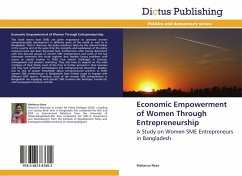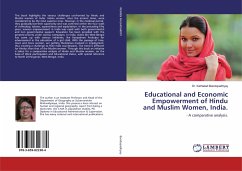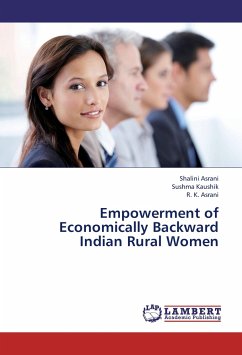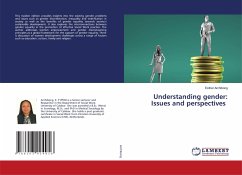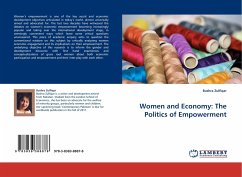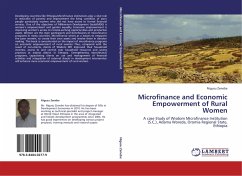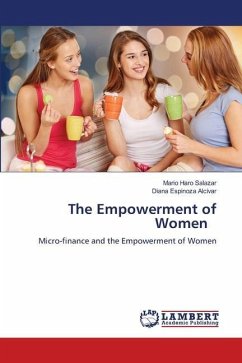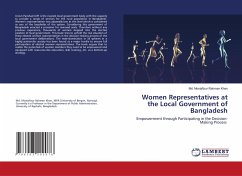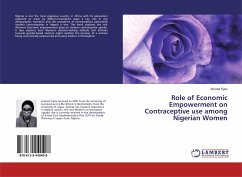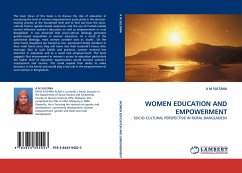
WOMEN EDUCATION AND EMPOWERMENT
SOCIO-CULTURAL PERSPECTIVE IN RURAL BANGLADESH
Versandkostenfrei!
Versandfertig in 6-10 Tagen
45,99 €
inkl. MwSt.

PAYBACK Punkte
23 °P sammeln!
The main focus of this book is to discuss the role of education in increasing the level of women empowerment particularly in the decision-making process at the household level and to find out how the socio-cultural factors (gender-based awareness and the use of Purdah-related norms) influence women's education as well as empowerment in rural Bangladesh. It was observed that socio-cultural ideology generates gender-based inequalities in women education. As a result of the patriarchal ideology, most women consider sons as assets'. On the other hand, daughters are treated as non- permanent family...
The main focus of this book is to discuss the role of education in increasing the level of women empowerment particularly in the decision-making process at the household level and to find out how the socio-cultural factors (gender-based awareness and the use of Purdah-related norms) influence women's education as well as empowerment in rural Bangladesh. It was observed that socio-cultural ideology generates gender-based inequalities in women education. As a result of the patriarchal ideology, most women consider sons as assets'. On the other hand, daughters are treated as non- permanent family members in their natal home since they will move into their husband's house after marriage. Due to such beliefs and practices, women received less attention in education and as a result lack empowerment. The book suggests that improvement in women's access to education particularly the higher level of education opportunities would increase women's employment and income. This could expand their ability to make decisions in the family and would play a key role in the empowerment of rural women in Bangladesh.



